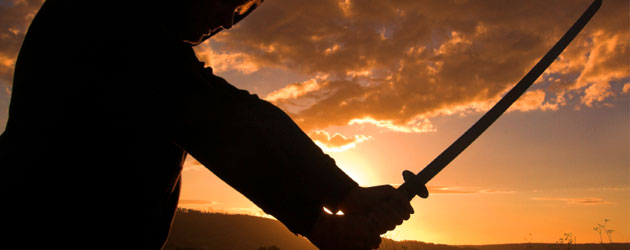 ‘The Book of Leadership and Strategy’, as translated by Thomas Cleary, is one of the oldest works of Taoist philosophy. It is amazing how truth and good counsel can transcend the ages. Composed over 2000 years ago, this book ought to be mandatory reading for anyone who wants to lead a just life. The translated work is published by Shambhala Publications. It is so easy to read, yet each sentence is as sharp as a blade. The book is in four parts: On State and Society; On Warfare; On Peace; and On Wisdom. It contains some mind-expanding observations, such as, ‘Having extensive territory and a large population is not enough to constitute strength. Having strong armour and sharp weapons is not enough to win victory. Having high walls and deep moats is not enough to ensure security. Having strict orders and penalties is not enough to be authoritative. Those who carry out policies conducive to survival will survive even if small. Those who carry out policies conducive to destruction will perish even if large.’
‘The Book of Leadership and Strategy’, as translated by Thomas Cleary, is one of the oldest works of Taoist philosophy. It is amazing how truth and good counsel can transcend the ages. Composed over 2000 years ago, this book ought to be mandatory reading for anyone who wants to lead a just life. The translated work is published by Shambhala Publications. It is so easy to read, yet each sentence is as sharp as a blade. The book is in four parts: On State and Society; On Warfare; On Peace; and On Wisdom. It contains some mind-expanding observations, such as, ‘Having extensive territory and a large population is not enough to constitute strength. Having strong armour and sharp weapons is not enough to win victory. Having high walls and deep moats is not enough to ensure security. Having strict orders and penalties is not enough to be authoritative. Those who carry out policies conducive to survival will survive even if small. Those who carry out policies conducive to destruction will perish even if large.’
Here is more brilliant advice, read by David Warrilow from a Shambhala audio book.
ATTENTION
[audio:Fav_books_Leadership_01_Attention.mp3]BRAVERY
[audio:Fav_books_Leadership_02_Bravery.mp3]CLARITY
[audio:Fav_books_Leadership_03_Clarity.mp3]DEPLETION
[audio:Fav_books_Leadership_04_Depleted_energy.mp3]DESIRE
[audio:Fav_books_Leadership_05_Desire.mp3]DIFFERENCES
[audio:Fav_books_Leadership_06_Differences.mp3]EGO
[audio:Fav_books_Leadership_07_Ego.mp3] EVALUATE PEOPLE
EXCELLENT LEADERS
FIRMNESS
FOCUS AND AWARENESS
GOING WITH THE FLOW
GOOD AND EVIL
HAPPINESS
HUMAN NATURE
INFLUENCE
[audio:Fav_books_Leadership_16_Influence.mp3]KNOWLEDGE
[audio:Fav_books_Leadership_17_Knowledge.mp3]PLEASURE
[audio:Fav_books_Leadership_18_Pleasure.mp3]PUNISHMENT
[audio:Fav_books_Leadership_19_Punishment.mp3] QUALITIES OF A LEADER
REWARDS
SELF DEVELOPMENT
SUCCESS
[audio:Fav_books_Leadership_23_Success.mp3] THE WAY
UNDERSTANDING THE UNIVERSE
VICTORY
WHAT PEOPLE VALUE
‘The Art of War’ by Sun Tzu, also translated by Thomas Cleary, gives advice about prudence. ‘The Book of Balance and Harmony’ is another exceptional work. Here is an excerpt translated by Thomas Cleary, published by Shambhala Publications:
‘Deep knowledge is to be aware of disturbance before disturbance, to be aware of danger before danger, to be aware of destruction before destruction, to be aware of calamity before calamity. Strong action is training the body without being burdened by the body, exercising the mind without being used by the mind, working in the world without being affected by the world, carrying out tasks without being obstructed by tasks…
‘To sense and comprehend after action is not worthy of being called comprehension. To accomplish after striving is not worthy of being called accomplishment. To know after seeing is not worthy of being called knowing. These three are far from the way of sensing and response.
‘Indeed, to be able to do something before it exists, sense something before it becomes active, see something before it sprouts, are three abilities that develop interdependently. Then nothing is sensed but is comprehended, nothing is undertaken without response, nowhere does one go without benefit.’
As a digital-age philosopher, I delight in learning about the philosophers of old. Bryce Magee’s book, ‘The Great Philosophers’, provides insight into the forefathers of this field.



Comments are closed.